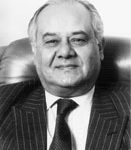Second Opinion
The Thaw in Indo-Pak Relations
Date: July 24, 2011
In July 2011, Jinnah Institute asked a host of experts their views on the Indo-Pak dialogue process, as well as its goals and limitations. At the time, the Pakistani Interior and Indian Home Ministers followed by the two countries’ Foreign Ministers, had met within the span of a week to largely favourable responses. Ms. Sushobha Barve, Executive Director, Centre for Dialogue and Reconciliation; former Pakistani Foreign Secretary Humayun Khan; former Ambassador Arif Kamal; former Indian Foreign Secretary Salman Haider and former Ambassador Aziz Ahmad Khan commented on the expected results of the diplomatic exchanges and their impact on the outstanding Kashmir dispute.
The four people who spoke to Jinnah Institute were Sushobha Barve; the Executive Director, Centre for Dialogue and Reconciliation, Ambassador Humayun Khan; the former Foreign Secretary of Pakistan, Ambassador Arif Kamal; a former Pakistani Ambassador, Ambassador Salman Haider; the former Foreign Secretary of India, and Ambassador Aziz Khan; a former Ambassador and Honorary Vice President of the Jinnah Institute.
The experts were asked to comment on two themes, outlined as the expected results on the peace process as a result of the diplomatic exchange blitz as well as the CBMs on the Kashmir issue.
Theme 1: Expected results of diplomatic and ministerial exchanges between India and Pakistan
Sushobha Barve began by pointing out that the fact that there seemed to be a determination on part of both governments to remain engaged in the dialogue process, was a positive gain. According to her, as both sides continued talking they would hopefully gain confidence in one other. She however regretted that there was still no positive outcome on the Sir Creek issue, which in her opinion was an issue that would not have caused any public outcry. However, she expressed hope that trade and commerce, which have had an overwhelming response in both countries would move forward, adding that economic ties between us could help in addressing tougher political decisions.

Salman Haider argued that the frequency of bilateral exchanges resulted from the deliberate choice of the two governments, which he felt had done much more than just go along with a moving process. He noted how discussions between them could well have been disrupted and brought to a halt by incidents, such as the attacks in Mumbai, something which had been the case in similar circumstances in the past. But Mr. Haider praised the two sides for not permitting that to happen, adding that re-engagement between them as settled at Thimphu had followed the agreed course, with Ministers and senior officials meeting at regular intervals to advance the shared agenda and to bring closer the normalization that both sought. This was the backdrop, according to Mr. Haider, against which the two Foreign Ministers met. He noted that they reviewed progress over the several recent rounds of talks, gave a push or two where needed, and left the impression that they wanted to take the process further.
Nevertheless, he expressed his desire for more concrete consequences. The former Foriegn Secretary bemoaned the fact that the doors to freer trade and easier movement across the border were opening all too slowly. He also agreed with Ms. Bhavre in noting that there was no disputing the fact that easier access in trade and a less restrictive visa regime would benefit both sides, but felt that they were both held back by an excess of caution.

Humayun Khan observed that the Indo-Pak dialogue seemed to be well on track after its resumption following a two-year suspension. In his view, the meeting of the Foreign Ministers in Delhi was, perhaps, the most successful so far, not only in terms of atmosphere but also in concrete achievements. Yet he felt he could not escape the thought that both sides were still tentative in their approach. He pointed out a hesitancy to take major leaps forward or even to finalise matters on which discussions had been virtually completed, like Siachen or Sir Creek. He observed that all this would indicate that the relationship remained fragile and could well remain hostage to single events. Yet, at the same time he was keen to point out the fact that the second Mumbai attack has not drawn any comments adverse to Pakistan, either official or non-official. He argued that this needed to be specially noted as evidence that there has been significant lessening of suspicion and mistrust.
In his view the most serious obstacle in the way was the “˜one-dimensional’ view of the security establishment in Pakistan, which sees India as the eternal enemy. He added that the political leadership in Pakistan, though fully convinced of the need for good relations with India, did not have the confidence to defy the military. He concluded that in such a situation, if any bold and decisive steps were to be taken, the initiative would have to come from India. He noted however that the present situation was propitious enough to warrant another effort in this direction. He also pointed out that discussions on the nuclear issue and the need for both countries to cooperate in resolving the Afghan problem would promote mutual trust and here, encouraging Pakistan to take the lead on such matters. He advised thinking boldly and creatively to inspire the stability needed by both countries.

Aziz Khan echoed the views of the other experts by noting that the resumption of the dialogue process demonstrated the realization that the only way to resolve issues between the two countries, including the menace of terrorism was through dialogue. He advised a set of agenda setting points for future discussions. Firstly, he noted that the dialogue process should be uninterrupted and be able to withstand accidents. Secondly, he focused on the need for the situation to move from merely being a “process” for discussing issues to a process to resolve issues. Thirdly, he stressed on the need for people-to-people contact to be made easier and facilitated through exchanges among civil society institutions, student and youth delegations as well as facilitation of cultural exchanges and promotion of tourism. He also exhorted the need for serious attention to be paid for the resolution of Kashmir issue and combating Terrorism. Finally, he urged the two nations to implement CBMs already agreed with sincerity and earnestness and to pay greater attention to promoting trade and economic cooperation.
Theme Two: The Impact of the Kashmir CBMs on the Peace Process

Sushobha Bhavre outlined the long-standing support for the Kashmir CBMs in India; saying that there was a feeling those would take the two countries closer to resolution. She noted that the environment on both sides of the LoC wanted resolution on Kashmir through dialogue. She also pointed out that travel and trade across the LoC would increasingly bring larger number of people in contact with each other, to observe and understand issues on the other side and to exchange views and ideas. However, she regretted that there was no such consensus at the moment.
She also expressed her disappointment that although the governments had on one hand expanded the trade from 2 to 4 days, they had not yet expanded the list, nor agreed to banking facility that had been the number one demand of the trade bodies on both sides for the past 3-4 years. She added that she was aware that India had proposed that banks of either side to open branches across LoC, but admitted she was not sure why Pakistan was not agreeing to this. She also noted how the separatist leaders had also welcomed the Kashmir CBMs and was optimistic that with time, resistance to liberalizing the LoC would weaken and allow people on both sides the freedom to travel and conduct economic activities.
Salman Haider predicted that the CBMs on Kashmir had considerable potential. He added that since the cross-LOC trading arrangements were first introduced, they had been greatly welcomed on both sides and had brought benefit to traders and producers. However, he noted that these arrangements were as yet very limited in scope, which was why the trading community had been clamouring for more. Despite the barriers in banking, he felt that the liveliness of the trade and the eager interest shown by interested parties on both sides were an encouraging sign. The response of the governments in his opinion, even though lined with customary caution, would do much to strengthen commercial interaction. He also noted that by agreeing to ease arrangements at the LOC, the Ministers had shown responsiveness to the difficulties experienced by these individuals.
He felt that the most significant aspect of these relatively small incremental cross-LOC measures was that they reinforced the structure of tranquillity that had now prevailed there for over a decade since the ceasefire came into effect. He mentioned that residents of the border areas had a strong interest in maintaining these ameliorated conditions that peace conferred so the CBMs had to be seen as part and parcel of the peace process in Kashmir.
Humayun Khan maintained that the CBMs on Kashmir on which both sides and, more importantly, the Kashmiri people agreed, represented a substantial part of the eventual solution to the problem. He stressed that the key lay in giving comfort to the people of the State, to enable them to live peacefully and to pursue their livelihoods in an atmosphere of normalcy. Extensive meetings of representatives from both sides of the LOC had made it clear to him that they all wanted an end to violence and a de facto unification of the State, in the sense that the LOC became irrelevant. He felt that the problem, however, had been that none of the CBMs have been implemented in their true spirit. Travel and trade across the LOC has not been made as easy as it should have been and the internal CBMs on the Indian side, like the role of the security forces, had only been marginally addressed. He criticised the bureaucratic hurdles still in place, which meant that travel and trade would continue to stagnate. He asked that if all parties are agreed on the principle, then why the reluctance to forge ahead? He concluded by noting that the Track II dialogues had contributed significantly to the partial expansion of the CBMs, and both sides should focus on their full implementation. He was convinced that this would greatly facilitate a final solution of Kashmir.
Aziz Khan pointed out that the Kashmir related CBMs had suffered from a lack of serious implementation. In his eyes, these CBMs were an important step towards the resolution of Kashmir issue and promotion of peace between the two countries. He stressed that extra effort needed to be made to set aside old mindsets and deeply ingrained mutual suspicions, as well as letting the people across the LOC play a more active role in the peace efforts.

The former ambassador felt that the CBMs on Kashmir were in the positive direction and represented a collection of steps that ought to be actualized. Secondly, he felt that the CBMs should enter the domain of confidence building with Kashmiri people , and not be seen as a matter between two countries. He particularly stressed that it was important that elites in the two countries, whether political or bureaucratic, avoid another historic mistake of treating Kashmir as a territorial question.
He also advised that the promise to expand measures for greater cross-LoC travel and trade should be actualized rapidly, and beyond that, steps to bring demilitarization should be brought into the fore.
This material does not reflect the views of the Jinnah Institute, its Board of Directors, Board of Advisors or management. This material may not be copied, reproduced or transmitted in whole or in part without attribution to the Jinnah Institute (JI). Unless noted otherwise, all material is property of the Institute.
Copyright © Jinnah Institute 2011
